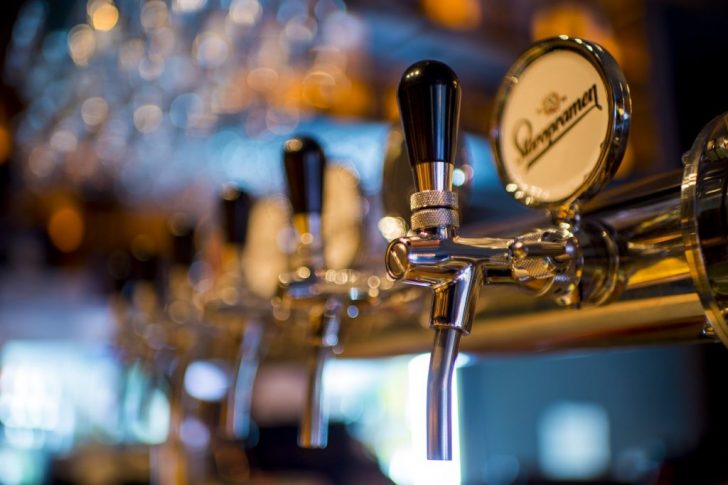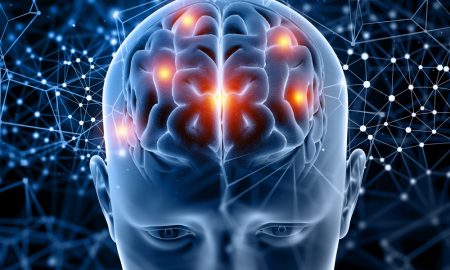
Surprising Results Of Alcohol Consumption

There is evidence that humans first consumed alcohol in Georgia around 6000 B.C. Ancient Egyptian and Sumerian texts dating back to around 2100 BC also mention alcohol as a medicine. Early modern protestant leaders also agreed with the Catholic church and current beliefs that, despite alcohol intoxication being considered a sin, controlled consumption of alcohol is a gift from God that enables humans to enjoy their lives more.
Honey and fruit juice have been fermented for thousands of years to produce alcohol. The need for humans to drink develops gradually once our mind begins associating positive memories and feelings with drinking after a difficult day. Our brain craves more joyous feelings as these feelings subconsciously make us feel rewarded and allow us to feel more rewarded.
The dark side of alcohol

Magda Ehlers/ Pexels | A man that drinks is throwing his life away
To quote Jerome K. Jerome, life works upon compensating balance, and when one finds the happiness, he also loses something. Evidently, it has been observed that small amounts of alcohol consumption have been proven to be beneficial against certain life-threatening diseases. As euphoric as the ‘buzz’ may seem, when consumed in an uncontrolled manner, alcohol can be dangerous as well.
It has been reported that people consuming a large quantity of alcohol have developed significant changes in their lives over time, including anxiety, sleep problems, memory problems, and problems with their romantic and family relationships. Additionally, our liver and pancreas, organs that support digestion and remove toxins from our blood respectively, have been shown to be affected by alcohol consumption

Isabella Mendes/ Pexels | A drink a day keeps reality at bay
Over 15% of people who try alcohol wind up becoming addicted. But treating the disease has proved difficult because biochemically, alcoholism is anything but simple. Alcohol affects several families of neurotransmitters, initially stimulating the release of dopamine in the amygdala and the nucleus accumbens, the brain’s reward centers. The levels drop to normal with continued drinking, however, and medicines that target these centers, modulating the effects of dopamine, “have been something of a disappointment.”
Effects on body and mind after addiction

Pixabay/ Pexels | Alcohol gives you infinite patience for stupidity
If occasional drinking has led you to allow substances to take control of you, then it’s best to cut out the alcohol from your life and seek therapy or join a group where people have a similar experience as yours. There’s nothing to be ashamed about, as the scientific meaning of alcohol is “psychoactive drug.” You can also follow a few tips to control your temptations when in public, such as trying something new such as gaming, socializing, cooking, exercising, etc., and investing your time into that activity or cutting yourself away from the people that are likely to expose you to alcohol-related situations, at least till you get a grip of yourself.
While cutting out excessive drinking has health benefits for your liver and heart, it also puts your body at multiple risks of psychological effects. Sudden detox can contribute to depression and anxiety and can also make one suicidal. Some people start leaning towards drugs and cigarettes as an alternative and start depending on those. The person is also at risk of withdrawal and relapse; hence a close eye should be kept on those people.
More in Health & Well-being
-
`
How Does the Brain Play Into Mindset? The Power of the Mindset
How does the brain play into mindset? Within the brain lies the foundation of our mindset, shaping our perceptions and guiding...
August 3, 2024 -
`
How Often Should You Meditate to Achieve Your Goals
How often should you meditate to achieve its benefits? This question is often asked by those looking to incorporate this practice...
July 25, 2024 -
`
How to Be a Better Wife? 10 Essential Tips
Marriage is a beautiful journey, a tapestry woven with moments of joy, tenderness, and perhaps even a few snags along the...
July 19, 2024 -
`
The Best Quotes About Shadow Self You Need to Read
The journey of self-discovery is incomplete without acknowledging the parts of ourselves that lurk in the dark—the shadow self. “Owning Your...
July 12, 2024 -
`
How to Make Your Wife Happy and Strengthen Your Bond
You’ve probably heard the age-old advice, “Happy wife, happy life.” But what does it really mean to make your wife happy?...
July 5, 2024 -
`
Top 6 Best Beaches in Lake Tahoe You Should Not Miss
Lake Tahoe is a gem nestled in the Sierra Nevada mountains, boasting some of the most breathtaking beaches you will ever...
June 28, 2024 -
`
6 Practical Ways of Using Social Media Less & Be More Productive
In today’s digital age, knowing how to spend less time on social media is a game-changer. Social media, though engaging, can...
June 20, 2024 -
`
How to Overcome Fear: Expert Tips and Advice
Feeling overwhelmed by fear and anxiety is a common human experience, one that often leaves us feeling trapped and uncertain about...
June 13, 2024 -
`
Here’s Everything You Need to Know About Open Relationships
An open relationship is a consensual arrangement where partners agree to engage in romantic or sexual relationships with other people. Unlike...
June 6, 2024















You must be logged in to post a comment Login